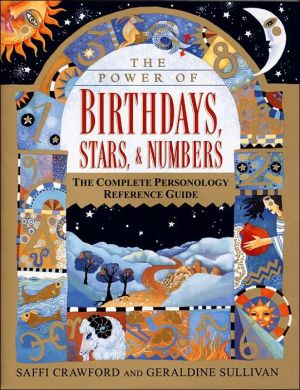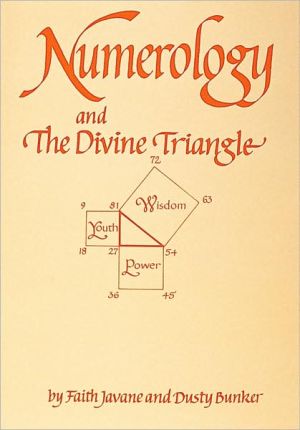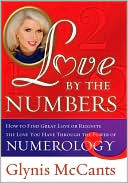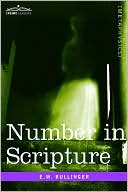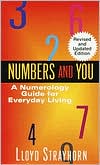What's in a Name?
Choosing your baby's name can be a thrilling journey of discovery: every name has an amazing history that you will want to explore. While other baby name books offer a line or two explaining what a name means, What's in a Name? reveals virtually every known fact about each name: its origin, meaning, and how it evolved over the course of generations as it traveled around the globe. In addition, What's in a Name? is the only book to offer contemporary analysis of the numerological significance...
Search in google:
Choosing your baby's name can be a thrilling journey of discovery: every name has an amazing history that you will want to explore. While other baby name books offer a line or two explaining what a name means, What's in a Name? reveals virtually every known fact about each name: its origin, meaning, and how it evolved over the course of generations as it traveled around the globe. In addition, What's in a Name? is the only book to offer contemporary analysis of the numerological significance of each root name, its astrological association, and its relationship with particular herbs, colors, metals, and stones. It's an unprecedented, in-depth look at every popular and prevalent name in use today.Inside you'll learn such intriguing information as how Jennifer and Wendy were adapted from their root name Guinevere; why the complementary gemstone for the name Simon is green amber (which, when worn on the body, supposedly relieves toothaches and other ailments); and how the name Tiffany -- whose astrological association is Capricorn -- took a hiatus in the eighteenth and nineteenth centuries only to burst back onto the scene again in the 1960s, thanks to the classic movie, Breakfast at Tiffany's.Fun to browse, fascinating to read, this one-of-a-kind guide sheds light on more than 3,000 names -- and will help you make the choice that will last a lifetime both educated and just right for your baby.
From "A"\ AARON\ Aharon Ari, Arin, Arnie, Arnina, Aron, Arona, Haroun, Ron, Ronny: The biblical Aaron, the first High Priest of the Israelites, was ultimately renowned as a great peacemaker. But he is best known for helping his younger brother Moses and his sister Miriam liberate the children of Israel from slavery in Egypt. When the brothers appeared before the pharaoh to demand freedom, Aaron acted as Moses' spokesman, since Moses was a stutterer. Aaron demonstrated the power of the Hebrew God by throwing his staff down onto the floor in front of the pharaoh, where God miraculously transformed it into a snake. Another miracle associated with Aaron's staff occurred when God commanded it to burst into bloom, thus creating the flower that became known as the goldenrod.\ There is some dispute as to whether the name Aaron comes from the Egyptian word haron, meaning "high mountain" or "mountain of strength," or from the Hebrew word aharon. Aharon means "light" or "bright" and is also related to words that mean "to sing" and "to enlighten" — a fitting choice for this high priest who taught his people, lit the menorah in the desert sanctuary, and sang holy songs.\ The Arab version of the name is Haroun. Haroun-al-Raschid (Aaron the Just), was a powerful ruler in eighth-century Persia. Also known as the Caliph of Baghdad, Haroun is the hero of The Arabian Nights.\ Early in the Middle Ages, Jewish parents chose biblical names for their children, but the practice didn't become popular among Christians until the sixteenth century, when Protestants shunned names that did not have religious associations. By that time, Aaron was a revered name because of Saint Aaron, who was martyred under the Roman emperor Diocletian.\ During the seventeenth century in the American South, the wives and daughters of plantation owners were given the duty of renaming slaves when they refused to reveal their African names. More often than not, the women chose biblical names. Aaron was especially popular, which is ironic in light of the original Aaron's role in helping to lead his people out of bondage. Perhaps because of this association with liberation, the name enjoyed a revival among African Americans beginning around 1915.\ By the late 1800s, Aaron had spread across Europe, North America, and Australia and was among the top 100 names worldwide. Jewish immigrants to North America and Australia breathed new life into the name by using it as a surname. It was a Jewish tradition to take as a surname the appellation of a priest or king, and add bar, off, vitch, or kin — all of which mean son of — to the end of it. Bar Aron (son of Aaron) became Baron. Aranoff, Aronovitch, Arkin, and Aaronson all thrived as last names among immigrants, and they are still prevalent among Jewish Americans and in Israel. A Yiddish nickname for Aaron was Haare or Hurre, and many with that nickname adopted Hirsh or Harris as a surname in the New World.\ Aaron is widely used among the Amish, and in the general population it remains a popular first name among Jews and non-Jews alike. In Hawaii, Aaron is known as A'alona. It is still among the top 40 most-used male names in the United States.\ Number\ Four. Above all, fours are dependable. Many are born leaders, with a natural proclivity for making their way to the top in their chosen field.\ Astrological sign\ Aries. Ruled by the planet Mars and charged by its element of fire, Aries people are dynamic and courageous, and they exude self-confidence.\ Color\ Brownish red. Brown is a color of security and promotes a feeling of ease. The combination of brown and red helps to allay fear and stress, acting as a stabilizer against anxiety.\ Stone\ Jet. Since Roman times, jet has been used by travelers as a safety charm for hazardous journeys. It was also burned as incense. It was believed that a jet necklace united the body and soul and that once one wore it, one should never part with a jet stone.\ Element\ Gold. Gold enhances and is an excellent complement to the powers of jet.\ Herb\ Goldenrod (Solidago virgaurea). The flowering tops and leaves of the goldenrod plant, brewed as a tea by herbalists, are used for kidney problems and whooping cough.\ AATAMI: From the root name Adam.\ ABAGAEL: From the root name Abigail.\ ABAGIL: From the root name Abigail.\ ABAIGEAL: From the root name Abigail.\ ABAME: From the root name Abraham.\ ABARRAN: From the root name Abraham.\ ABARRANE: From the root name Abraham.\ ABBE: From the root name Abigail.\ ABBIE: From the root name Abigail.\ ABBY: From the root name Abigail.\ ABBYE: From the root name Abigail.\ ABBYGAIL: From the root name Abigail.\ ABE: From the root name Abraham.\ ABIE: From the root name Abraham.\ ABIGAIL\ Abagael, Abagil, Abaigeal, Abbe, Abbie, Abby, Abbye, Abbygail, Gail, Gaila, Gayel, Gayle: Taken from the Hebrew Avigayil, a contraction of avi (father, or source) and gil (joyous stirrings or joyous happenings), Abigail literally means "the source of joy." In the Old Testament accounts, Samuel referred to Abigail, the wife of King David, as a woman of common sense and efficient action.\ The name gained popularity among non-Jews during the sixteenth century, when it began to appear in English birth registers alongside many other biblical names. One hundred years later, though, Abigail fell from favor in England. The Puritans may have been most responsible for the drop in popularity. As a group, they frowned on Abigail, possibly because of the biblical Abigail's scandalous behavior in marrying King David immediately after her first husband's death. Also in England, a series of popular playwrights used Abigail for the characters of servants. Consequently, abigail became a slang term for a maid.\ Rarely did Abigail appear in early colonial birth records, but the appellation did become common after 1675 in non-Puritan communities. Although chosen regularly throughout the eighteenth century, Abigail suffered the same fate as all biblical names in the early part of the nineteenth century. Then in the mid-1800s, a hugely popular Abigail surfaced as a spirited innkeeper in Charles Dickens's Our Mutual Friend, and, perhaps owing to Dickens's fame, the name took off once again\ In the United States, Abigail began a rapid rise in popularity during the 1970s, and its current revival places it among the top 50 U.S. girls' names. Girls named Abigail are frequently called by the diminutive Abbie, sometimes spelled Abby. Abbie is sometimes used as an independent name.\ Gail (with variants of Gayle and Gaila) started as a pet name for Abigail, but is now considered to be a given name in its own right. Gail reached its height of popularity in the United States in the 1940s, and continued to be used regularly until the late 1970s.\ Number\ Five. People of this number have an abundance of energy and are happiest when in the company of others. Spirituality is a large part of their lives. Fives can be restless, and they experience intense moodiness.\ Astrological sign\ Aquarius. One of the noblest traits of Aquarians is their humanitarianism. But Aquarius is an air sign, and its natives approach interpersonal relationships with free spirits. They fare best when they are independent of restrictions in life or love.\ Color\ Sky blue. This color is associated with peace and promotes imagination. It also placates a troubled mind.\ Stone\ Sodalite. Sodalite has been discovered in ancient tombs and was once mistaken for turquoise because of its similarity in color. Egyptian priests used sodalite to dispel guilt and fear and to strengthen the power of mind over body.\ Element\ Calcite. Calcite is usually found in sodalite, appearing as white veins or patches throughout the blue stone, making sodalite resemble clouds and sky.\ Herb\ Lady's Mantle (Alchemilla vulgaris). This plant is found in eastern North America, Greenland and northern Asia. The stems can be bluish green with small green flowers. Herbalists brew lady's mantle into a tonic to increase appetite and soothe stomach ailments. Early dentists found it useful to stop bleeding after pulling teeth.\ Copyright © 1999 by The Philip Lief Group, Inc.


